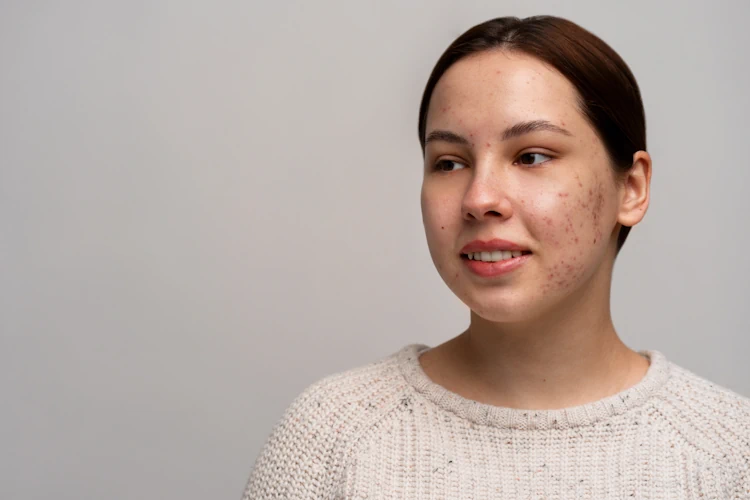Managing Acne Scars: How Laser Treatment Can Help Smooth Skin Texture
Acne scars can be a persistent reminder of past breakouts, affecting self-confidence and overall skin appearance. While there are various treatment options available, including topical creams, chemical peels, and microneedling, laser treatment has emerged as an effective solution for smoothing skin texture and reducing the appearance of acne scars. In this article, we’ll explore how laser treatment can help manage acne scars or cara menghilangkan jerawat pasir and achieve smoother, clearer skin.
Understanding Acne Scars
Before discussing laser treatment for acne scars or cara menghilangkan bekas jerawat, it’s essential to understand the different types of acne scars and how they form. Acne scars can manifest as depressed or raised areas of skin, known as atrophic and hypertrophic scars, respectively. These scars result from inflammation and tissue damage caused by acne breakouts, leading to alterations in collagen production and skin texture. While some acne scars may fade over time, others may persist and require intervention to improve their appearance.
How Laser Treatment Works
Laser treatment for acne scars works by delivering concentrated beams of light energy to targeted areas of the skin, stimulating collagen production, and promoting skin renewal. Depending on the type and severity of acne scars, different types of lasers may be used, including ablative lasers, non-ablative lasers, and fractional lasers. These lasers can penetrate deep into the skin’s layers, triggering a healing response that helps smooth out uneven skin texture and reduce the appearance of scars.

Types of Laser Treatment for Acne Scars
- Ablative Lasers:
- Ablative lasers, such as carbon dioxide (CO2) lasers and erbium lasers, work by removing the top layer of skin and stimulating collagen production in the deeper layers. These lasers are effective for treating deep, pitted acne scars and can provide significant improvements in skin texture and tone.
- Non-Ablative Lasers:
- Non-ablative lasers, such as pulsed dye lasers (PDL) and diode lasers, target the underlying layers of skin without damaging the surface. These lasers are suitable for treating mild to moderate acne scars and have minimal downtime compared to ablative lasers.
- Fractional Lasers:
- Fractional lasers deliver microscopic laser beams to targeted areas of the skin, creating small, controlled wounds that stimulate collagen production and skin regeneration. Fractional lasers, such as fractional CO2 lasers and fractional erbium lasers, are effective for treating both atrophic and hypertrophic acne scars with minimal risk of side effects.
Benefits of Laser Treatment for Acne Scars
- Improved Skin Texture: Laser treatment can effectively smooth out uneven skin texture and reduce the appearance of acne scars, leaving behind smoother, clearer skin.
- Stimulated Collagen Production: By stimulating collagen production, laser treatment helps strengthen the skin’s structure and promote healing, leading to long-lasting improvements in skin texture and tone.
- Minimal Downtime: Depending on the type of laser used, downtime following laser treatment for acne scars is typically minimal, allowing for a quicker recovery and return to daily activities.
Choosing the Right Laser Treatment
When considering laser treatment for acne scars, it’s essential to consult with a qualified dermatologist or skincare specialist who can assess your skin condition and recommend the most suitable treatment option. Factors to consider when choosing the right laser treatment include the type and severity of acne scars, skin type, treatment goals, and any previous skincare treatments or medications.
FAQs
- How many sessions of laser treatment are typically needed to see results?
- The number of laser treatment sessions required depends on factors such as the type and severity of acne scars, as well as individual skin response. Most individuals require multiple sessions spaced several weeks apart to achieve optimal results.
- Are there any side effects associated with laser treatment for acne scars?
- While laser treatment for acne scars is generally safe, some individuals may experience temporary side effects such as redness, swelling, or mild discomfort following the procedure. These side effects typically subside within a few days and can be managed with proper post-treatment care.
- Can laser treatment for acne scars be combined with other skincare treatments?
- Yes, laser treatment for acne scars can be combined with other skincare treatments such as topical creams, chemical peels, or microneedling to enhance results and address specific skin concerns. Your dermatologist will develop a personalized treatment plan tailored to your individual needs.
- How long do the results of laser treatment for acne scars last?
- The longevity of results from laser treatment for acne scars varies depending on factors such as skin type, acne scar severity, and maintenance treatments. While some individuals may experience long-lasting improvements, others may require periodic touch-up sessions to maintain optimal results over time.
- Is laser treatment for acne scars suitable for all skin types?
- Laser treatment for acne scars is generally safe for most skin types; however, individuals with darker skin tones may be at a higher risk of pigmentation changes or scarring. Your dermatologist will assess your skin type and customize a treatment plan to minimize risks and optimize results.